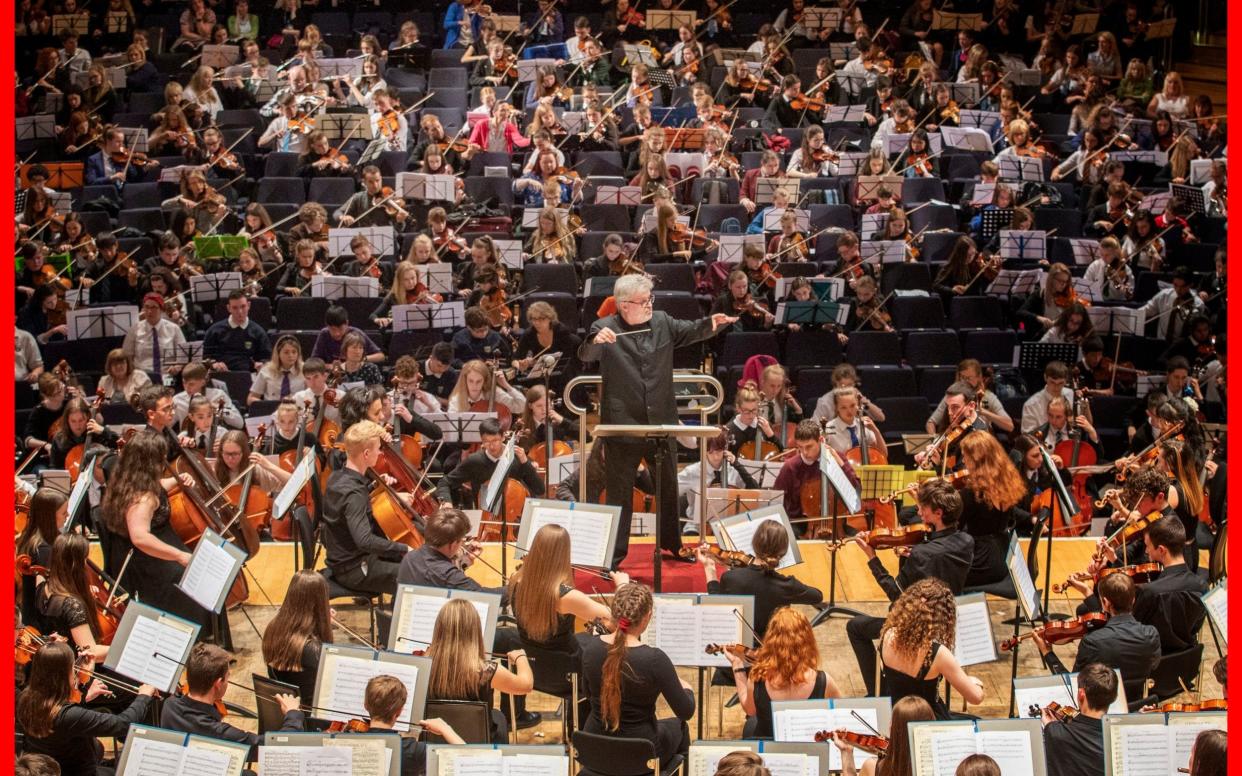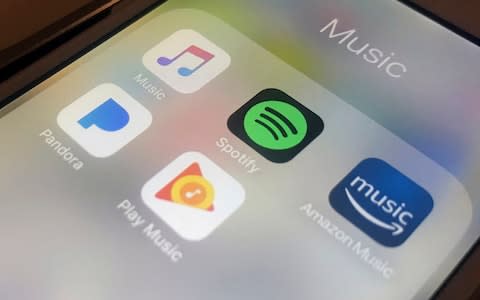Classical music sounds discordant note over streaming platforms 'bias'

From Sibelius to Shostakovich and Bach to Beethoven it has produced some of the most sublime and profound artistic experiences known to man.
But for all its genius, classical music has fallen foul of a very 21st century way of listening to music.
Musicians and classical music fans are growing increasingly frustrated at the way the computer algorithms of streaming platforms such as Spotify and Apple are biased in favour of pop, rock and dance music.
They claim the result is that streaming platforms are not only less likely to steer listeners towards classical music, but the way they are set up makes it harder for aficionados to find the composers, concertos or performances they seek.
While the artist, track and album categories on most mainstream streaming platforms work for pop and rock, they are less suited to finding the work of ‘nonperforming’ composers and works made up of multiple movements.
Take the case of Mozart. Since there is no special field for a composer, Spotify’s mobile app returns a frustrating and sometimes inaccurate list of albums in which he is designated as the “artist.” Apple Music has only recently added a “composer” field for searches.
In 2018 streaming accounted for only a quarter (25.2%) of classical listening – significantly lower than for the UK market as a whole (63.6%), although it was up from 19.5% in 2017.

The Musicians Union (MU) points out one problem is that the vast majority of streaming services were set up for rock, pop and dance music.
“Classical consumers looking for composer-led works can become frustrated by search facilities that were created for artist-led works,” the MU told The Telegraph.
The BPI, which promotes the British music industry, has called for streaming platforms to do more to promote classical music by making it easier for users to search for music online by ‘composer’, ‘conductor’, ‘orchestra’, and ‘label’.
Geoff Taylor, Chief Executive of BPI, said: “There is a tremendous opportunity for sustainable growth if the new digital platforms continue to improve the profile and searchability of classical music.”
Emmy Award-winning composer and pianist Michael Price says “streaming for classical music feels like it has a way to go before it can realise the considerable potential of the technology”
He said: “The largest sites have clumsy navigation and curation for classical music, with track and artist search struggling to show the breadth of performances of core classical works.”
But there is hope on the digital horizon for classical performers.
Two new music companies, Idagio and Primephonic, have set up subscriber streaming services devoted to classical music, with playlists that favour symphonies and operas rather than dance music and rock.
Till Janczukowicz, chief executive of Berlin-based Idagio, said: “If you have Herbert von Karajan conducting a Verdi opera with Maria Callas, who is the artist? This is not a crisis of genre. It is a crisis of the packaging of an industry.
“For musicians not to be retrievable in the digital space is a problem. If people don’t find the recording, they don’t find the performer, so it means that musicians lose visibility”
Thomas Steffens, chief executive of Amsterdam-based Primephonic, added. “We know that streaming is becoming the dominant channel and classical music is under-represented,
because it does not work as well. Classical music is around 5% of all music consumption
worldwide, including radio, live ticketing and physical. You would expect it to be 5% of
streamed music, but it’s only 1%.”
Primephonic and Idagio say they are tackling the anti-classical bias of most popular streaming platforms by building more extensive databases, with listings for composers, soloists, orchestras and conductors.
A report from Midia Research, which studies online media, last week found that while the average age of a classical listener was 45, 31 percent of those aged 25 to 34 included classical among the genres they “like listening to.”
And being placed on a prominent Spotify playlist helped a recording of the slow movement of Beethoven’s “Moonlight” Sonata by Liverpool-born classical pianist Paul Lewis, reach 49 million plays.
Mark Mulligan, of Midia Research, told The New York Times that mainstream streaming playlists “are exposing new, young audiences to classical music without them realizing initially that they are listening to classical music — they just know that they like what they are listening to.”

 Yahoo News
Yahoo News 
